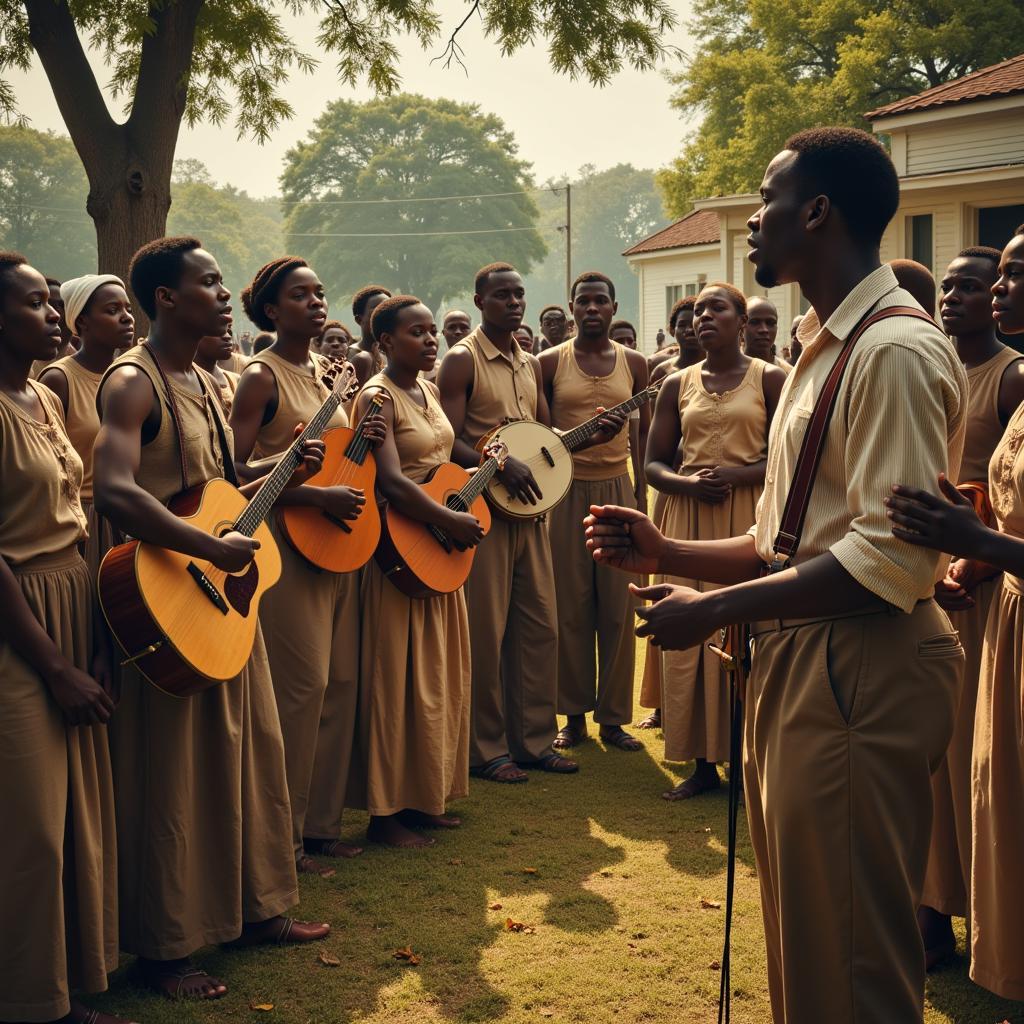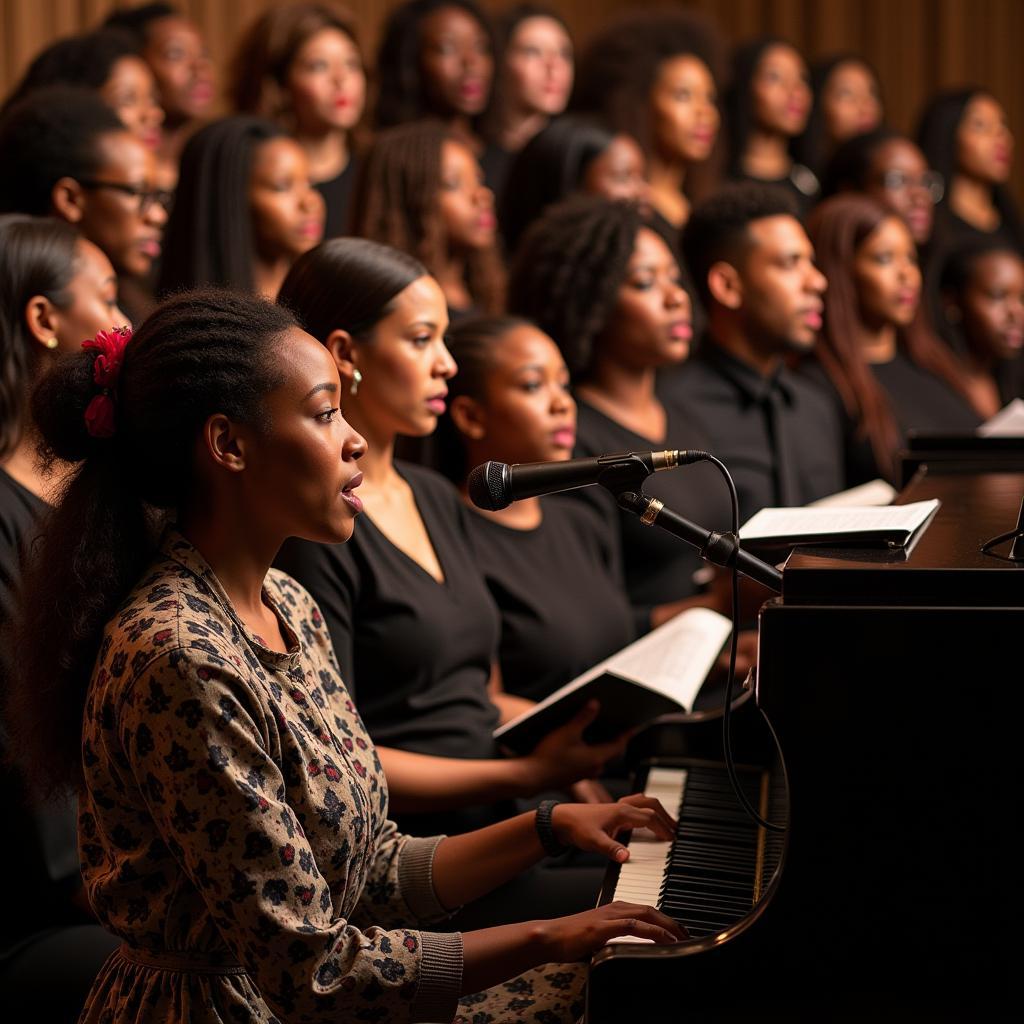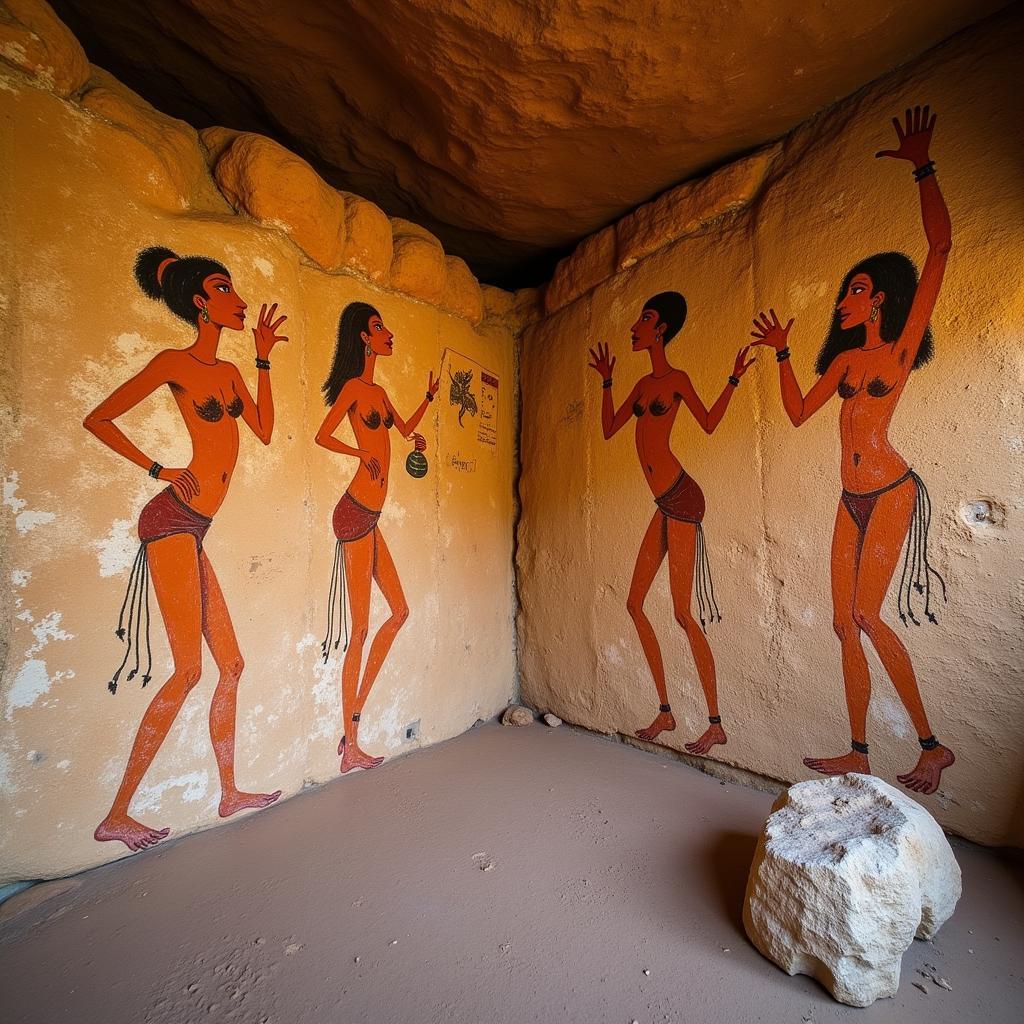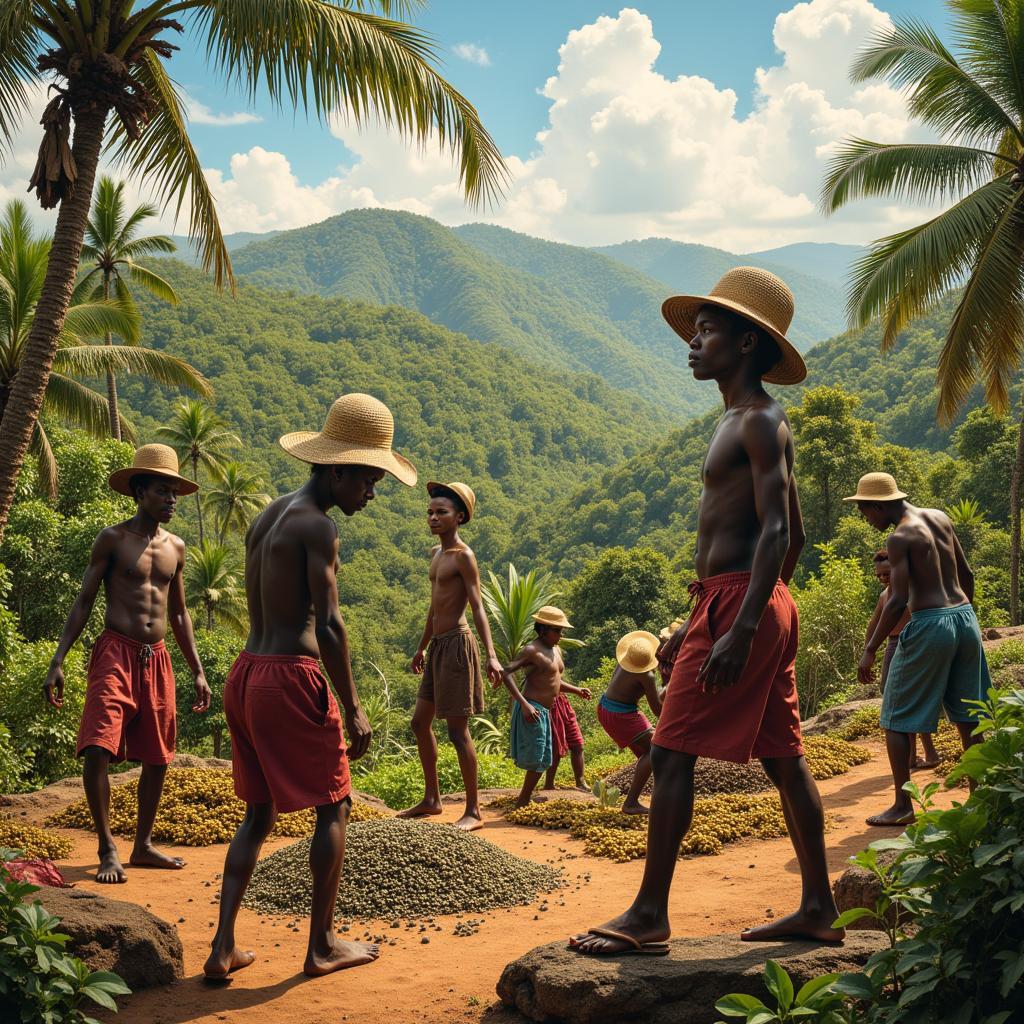A Deep Dive into African American Spirituals History
African American Spirituals History is a testament to the resilience and creativity of a people facing unimaginable hardship. Born out of the crucible of slavery in the United States, these songs served not only as a source of solace and hope but also as coded messages of resistance and a pathway to freedom. These powerful melodies continue to resonate today, carrying within them the echoes of a painful past and the enduring strength of the human spirit.
The Genesis of Sorrow: Spirituals in Early American Slavery
Spirituals emerged in the 18th and 19th centuries among enslaved African Americans on plantations across the South. Forced to abandon their native languages and cultural practices, they found a new form of expression in the music they created. Drawing on a rich tapestry of African musical traditions, blended with elements of European hymns and folk songs, they forged a unique musical genre that spoke to their unique experiences.  Early African American Spirituals Performance
Early African American Spirituals Performance
These songs weren’t merely expressions of religious devotion. They were a lifeline in a world devoid of basic human rights. They provided a sense of community, a shared identity, and a space for emotional release.
Coded Messages of Hope and Resistance
Many spirituals contained coded messages that went undetected by slaveholders. Songs like “Swing Low, Sweet Chariot” and “Follow the Drinking Gourd” weren’t just about a journey to heaven; they were instructions for escaping to freedom in the North. “Swing Low, Sweet Chariot” referenced the Underground Railroad, while “Follow the Drinking Gourd” alluded to using the Big Dipper as a navigational guide. These hidden meanings highlight the ingenuity and resilience of those who sang them.
From Plantation Fields to Concert Halls: The Evolution of Spirituals
Following the Civil War and the abolition of slavery, African American spirituals began to gain wider recognition. Fisk University’s Jubilee Singers, a group of formerly enslaved individuals, played a crucial role in introducing spirituals to a national and international audience. Their tours helped to raise funds for the university and, more importantly, brought the power and beauty of these songs to a wider audience.
Spirituals in the 20th Century and Beyond
The 20th century saw the continued evolution of spirituals. Composers and musicians like Harry T. Burleigh and William L. Dawson incorporated spirituals into their classical works, elevating them to the concert hall stage. The Civil Rights Movement of the 1950s and 60s witnessed a resurgence of interest in spirituals, as they became anthems of hope and resistance once again.
The Enduring Legacy of African American Spirituals
Today, African American spirituals continue to be performed and studied around the world. They serve as a powerful reminder of a painful chapter in American history and a testament to the enduring power of the human spirit. From the sorrow-filled melodies of the plantation fields to the soaring harmonies of concert halls, these songs continue to inspire, uplift, and remind us of the importance of hope and resilience.  Modern Spirituals Performance african american spiritual quotes provide a deeper insight into the spiritual and emotional context of these powerful songs. Understanding african american heritage definition is crucial to fully appreciating the cultural significance of spirituals. african american culture symbols often intersect with the themes and imagery found within spirituals. Even the celebration of african american christma has been influenced by the musical traditions of spirituals. african american catholic bible shows the evolution and adaptation of faith within the African American community, often reflected in spirituals.
Modern Spirituals Performance african american spiritual quotes provide a deeper insight into the spiritual and emotional context of these powerful songs. Understanding african american heritage definition is crucial to fully appreciating the cultural significance of spirituals. african american culture symbols often intersect with the themes and imagery found within spirituals. Even the celebration of african american christma has been influenced by the musical traditions of spirituals. african american catholic bible shows the evolution and adaptation of faith within the African American community, often reflected in spirituals.
Dr. Alana Jackson, Professor of African American Music at Howard University: “Spirituals are more than just songs; they are a living archive of African American history and culture. They tell stories of resilience, faith, and the unwavering pursuit of freedom.”
Reverend James Carter, Pastor of Ebenezer Baptist Church: “The power of spirituals lies in their ability to connect us to the past while inspiring us in the present. They remind us that even in the darkest of times, hope can endure.”
In conclusion, African American spirituals history is a powerful narrative of hope, resilience, and the struggle for freedom. These songs continue to resonate with audiences today, carrying the weight of history and the promise of a brighter future.
FAQ
- What are African American spirituals?
- What is the historical context of spirituals?
- What are some famous examples of spirituals?
- How did spirituals help enslaved people communicate?
- What is the legacy of spirituals today?
- How are spirituals related to other forms of African American music?
- Where can I learn more about African American spirituals?
Need support? Contact us 24/7 at +255768904061, [email protected], or visit us at Mbarali DC Mawindi, Kangaga, Tanzania.



